One hundred years of solitude in traces of Etching
The artist visited Aracataca, the hometown of Gabriel García Márquez, several times between 1996 and 2002, during which time he made his etchings in order to give greater veracity to his visual interpretation and to be in direct contact with the natural setting that inspired the novel.
From his creative imagination the faces of the Buendía family were created -helping readers not confuse the different José Arcadios or the discovery of the most beautiful woman in the world- and many other important aspects characteristic of the novel.
The originality of the fine-art print
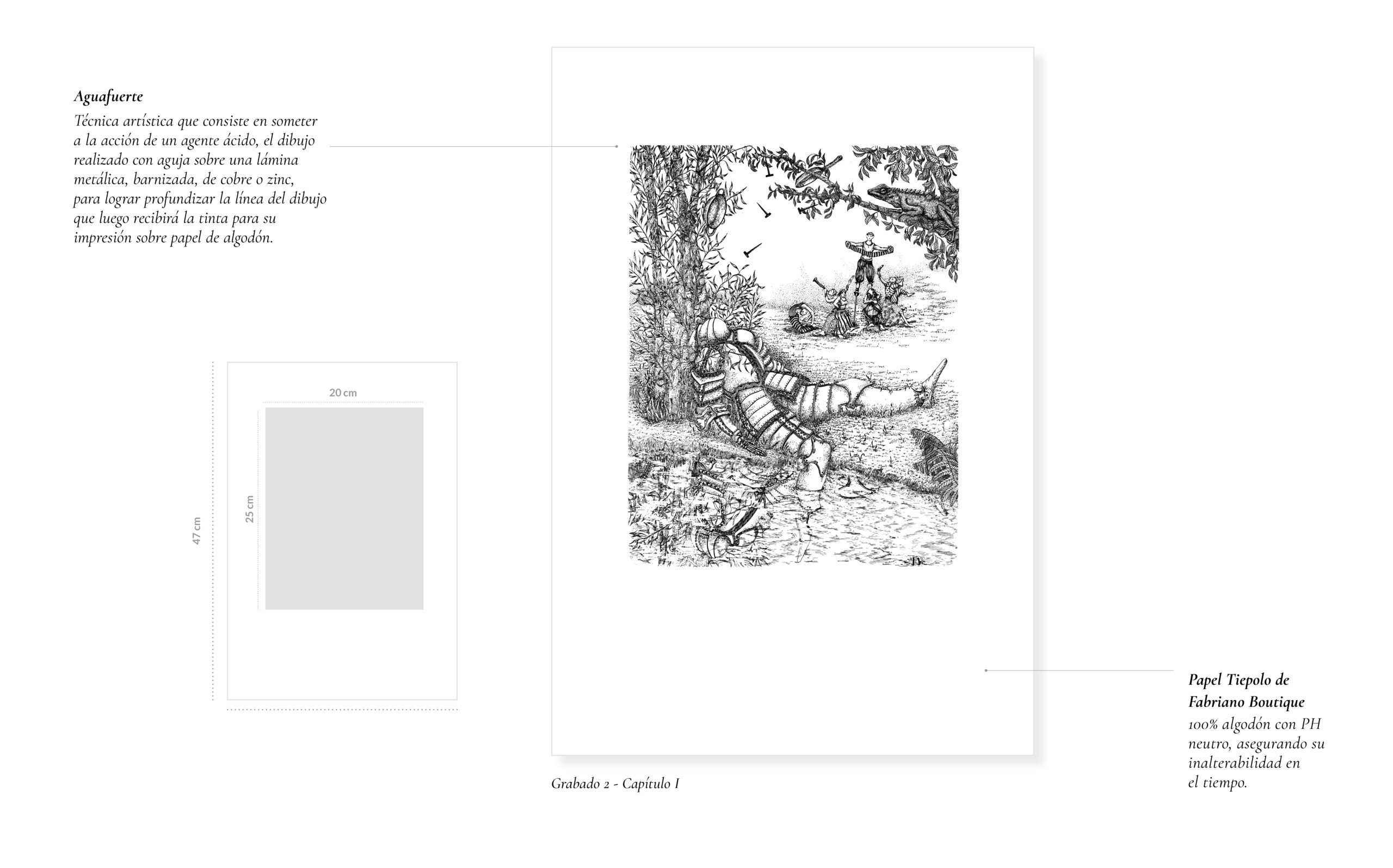
Etchings
Selection
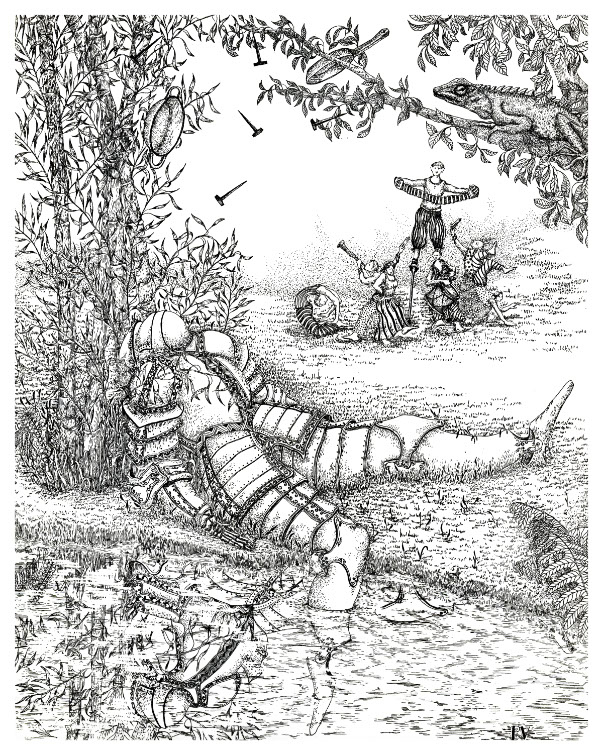
Etching 2 – Chapter I
“…they found inside a calcified skeleton with a copper locket containing a woman’s hair around its neck.”

Etching 5 – Chapter I
“Inside, where the expeditionaries explored with careful intent, there was nothing but a thick forest of flowers.”
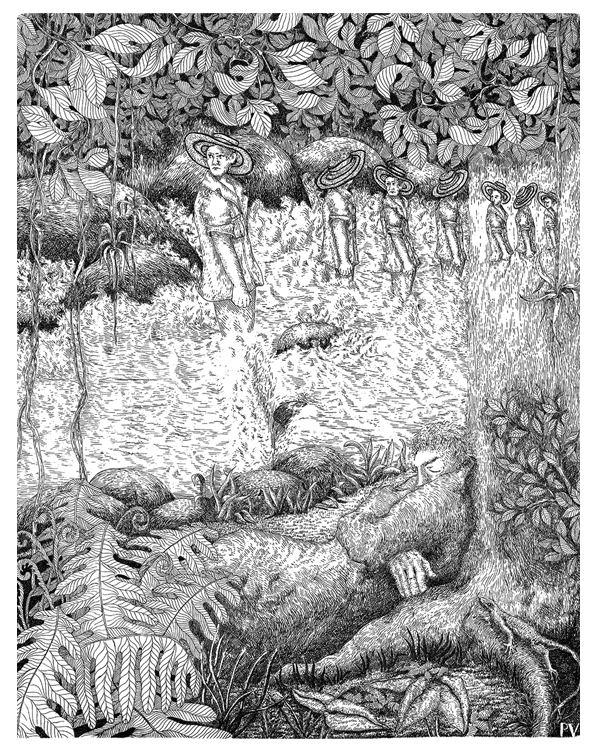
Etching 10 – Chapter II
“José Arcadio Buendía dreamed that night that right there a noisy city with houses having mirror walls rose up.”
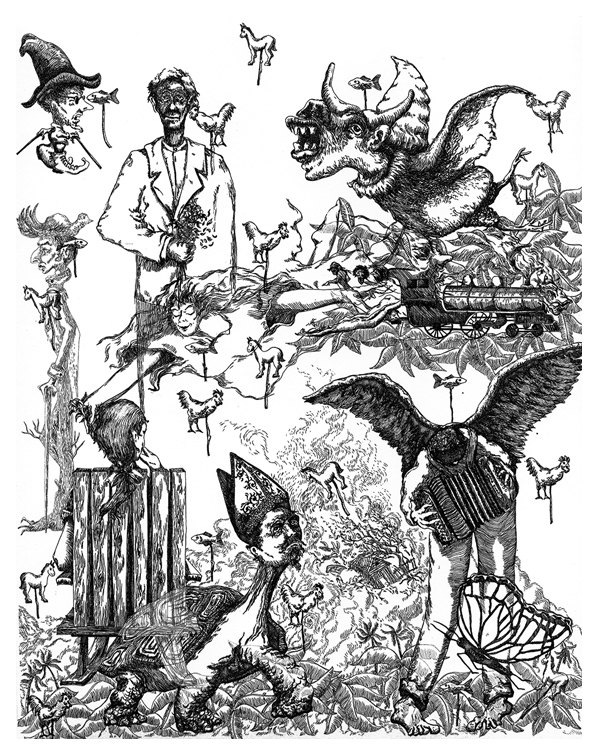
Etching 15 – Chapter III
“…but they could not get to sleep and spent the whole day dreaming on their feet.”
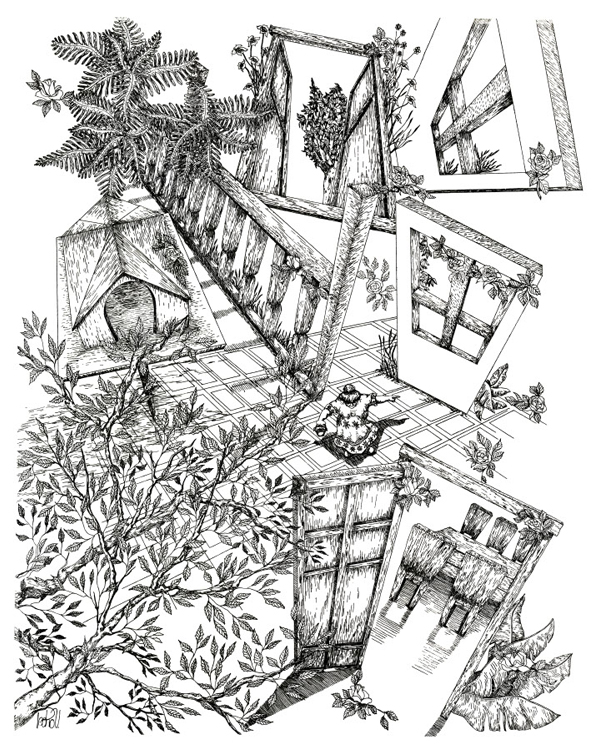
Etching 16 – Chapter III
“…Úrsula fixed the position of light and heat and distributed space without the least sense of its limitations.”
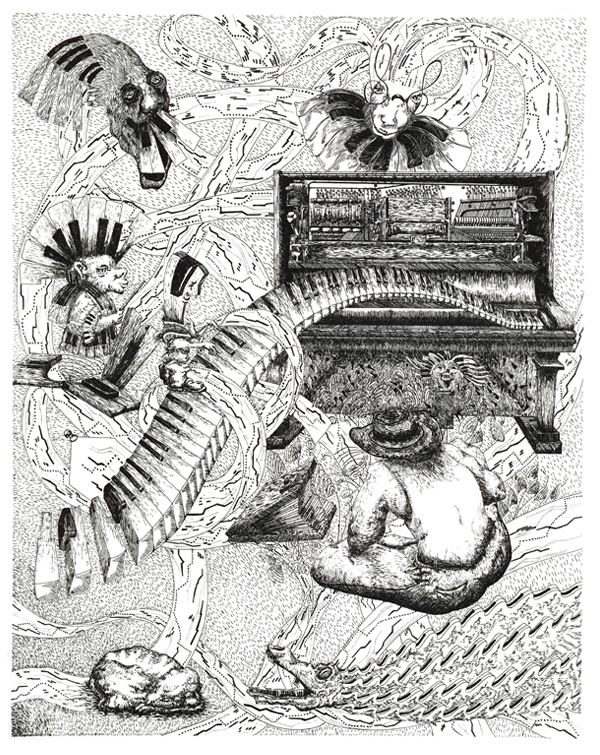
Etching 19 – Chapter IV
“…José Arcadio Buendía stopped his pursuit of the image of God, convinced of His nonexistence, and he took the pianola apart in order to decipher its magical secret.”
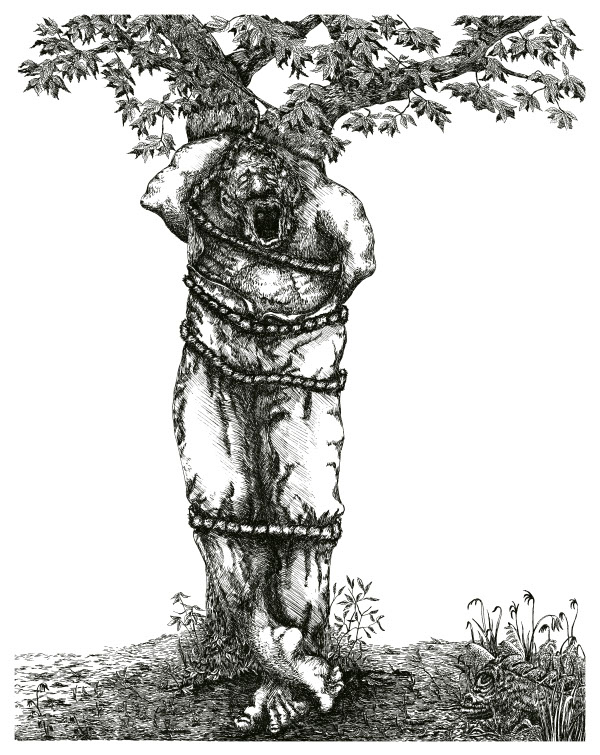
Etching 24 – Chapter V
“Ten men were needed to get him down, fourteen to tie him up, twenty to drag him to the chestnut tree in the courtyard, where they left him tied up, barking in the strange language and giving off a green froth at the mouth.”
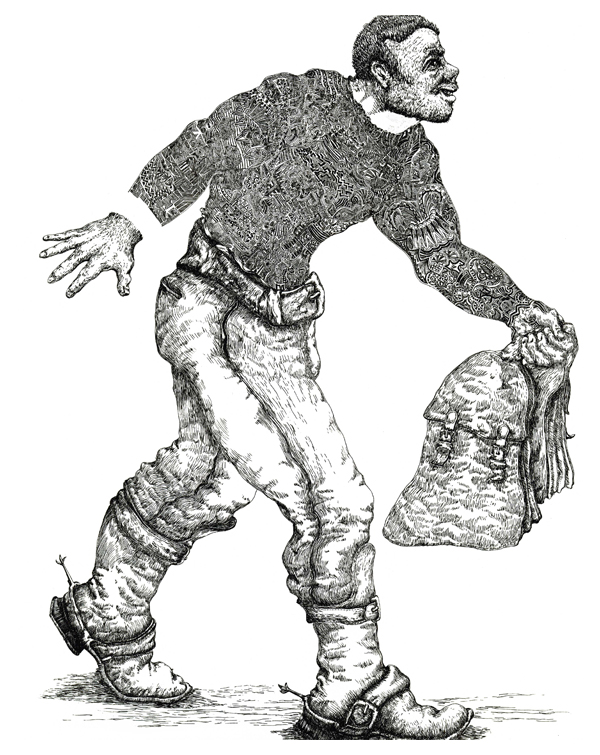
Etching 27 – Chapter V
“ ‘Hello,’…”
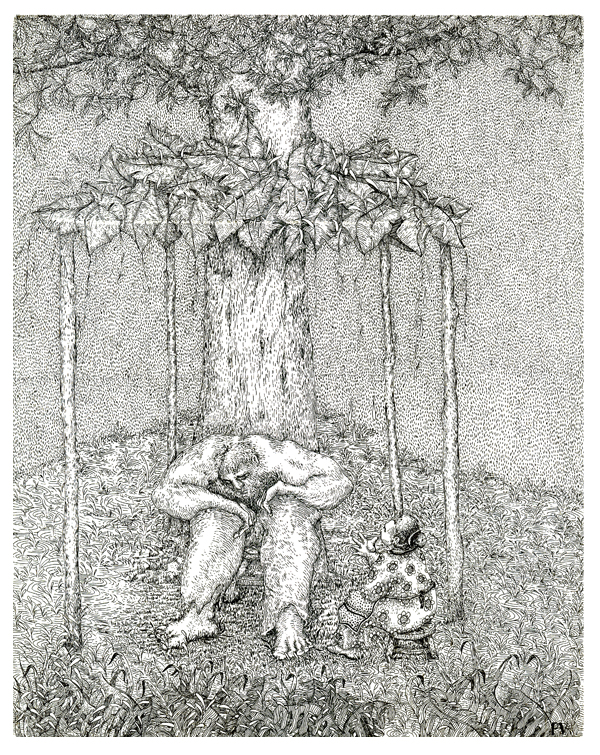
Etching 32 – Chapter VI
“ ‘Look what we’ve come to,’ she would tell him as the June rains threatened to knock the shelter down. ‘Look at the empty house, our children scattered all over the world, and the two of us alone again, the same as in the beginning.’ ”
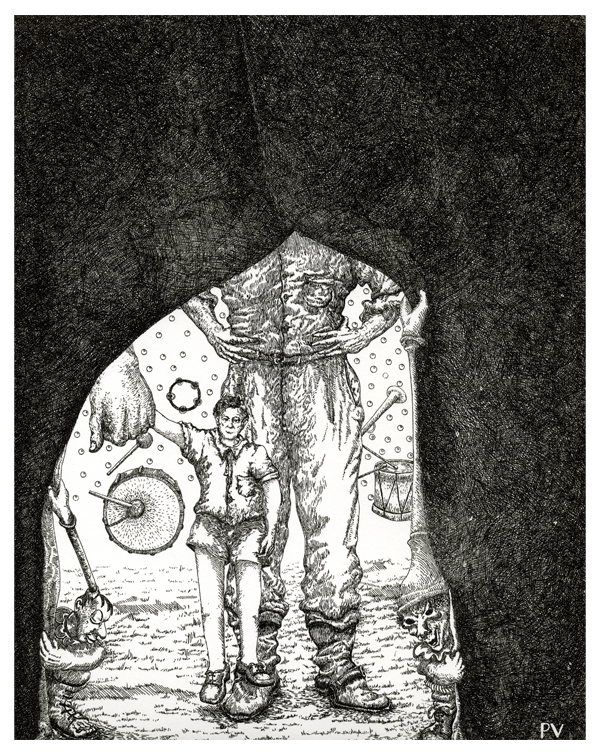
Etching 40 – Chapter VII
“Then the aluminum glow of dawn disappeared and he saw himself again in short pants, wearing a tie around his neck, and he saw his father leading him into the tent on a splendid afternoon, and he saw the ice.”

Etching 45 – Chapter VIII
“Carmelita Montiel, a twenty-year-old virgin, had just bathed in orange-blossom water and was strewing rosemary leaves on Pilar Ternera’s bed when the shot rang out.”
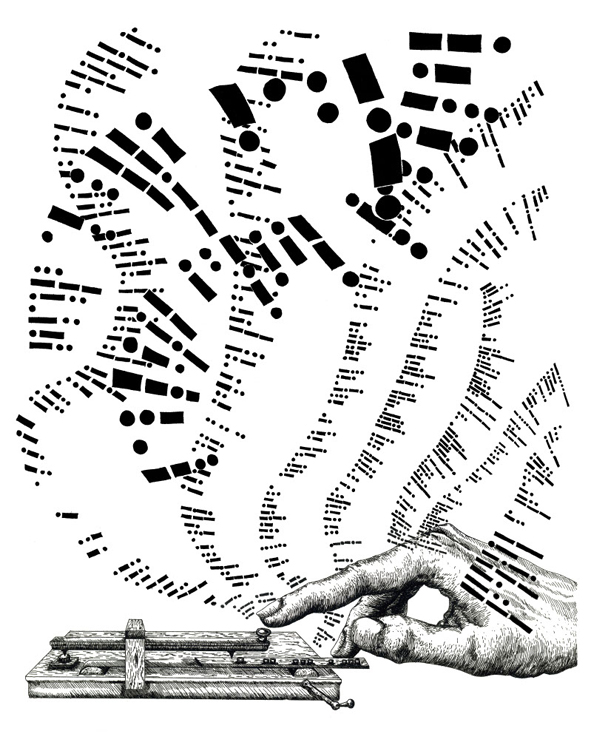
Etching 49 – Chapter IX
“ ‘Aureliano,’ he said sadly on the key, ‘it’s raining in Macondo.’ ”
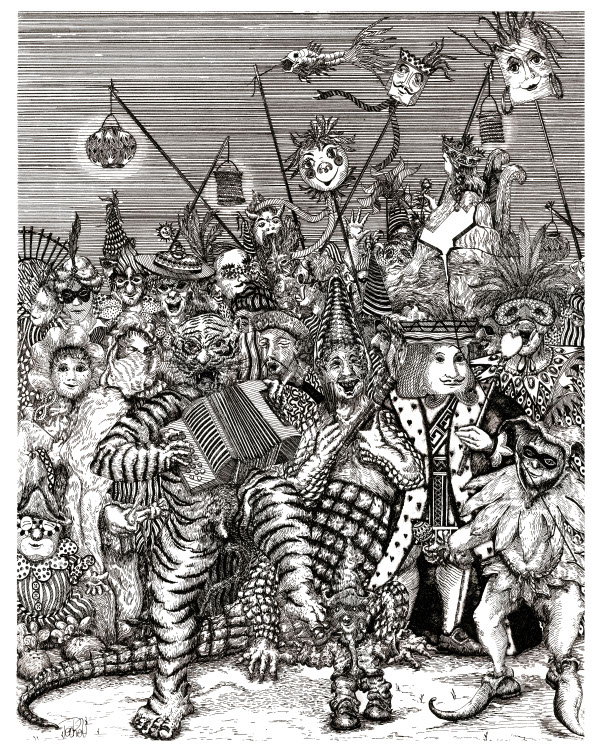
Etching 60 – Chapter X
“Suddenly, during the paroxysm of the celebration, someone broke the delicate balance.”
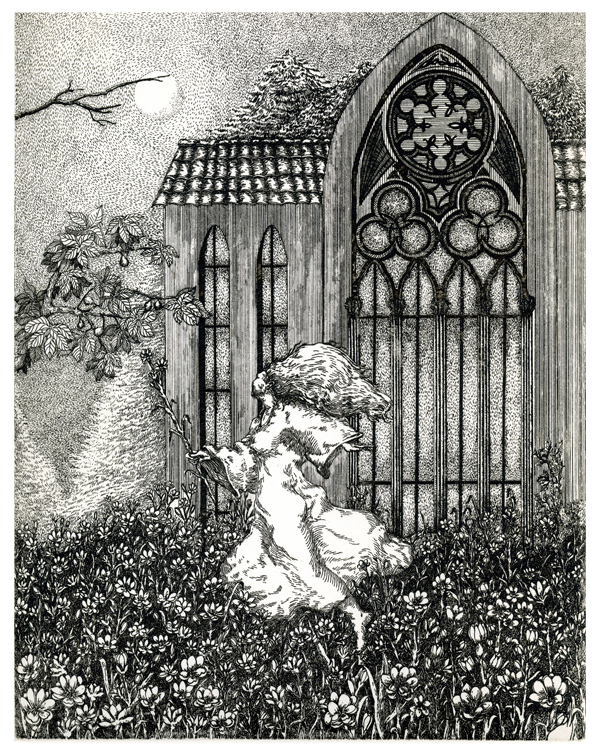
Etching 61 – Chapter XI
“ ‘It was your great-grandmother the queen,’ her mother told her during a truce in her coughing. ‘She died of some bad vapors while she was cutting a string of bulbs.’ ”
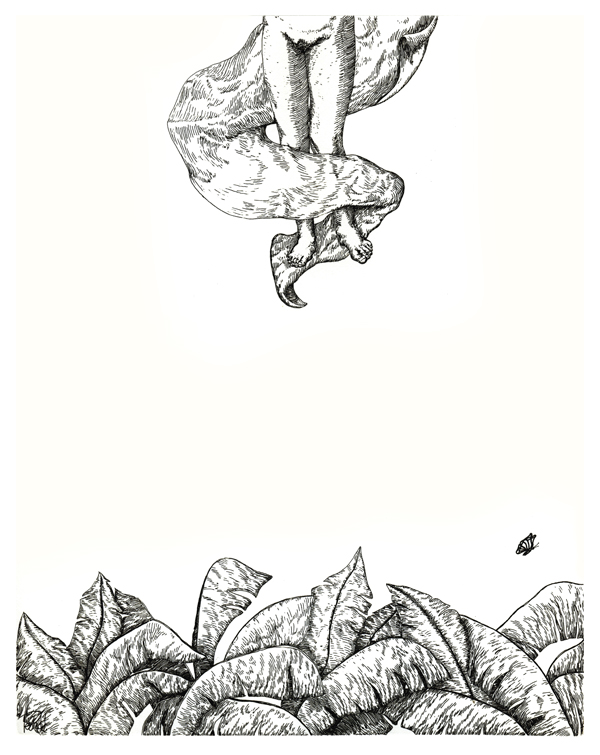
Etching 71 – Chapter XII
“Perhaps, not only to attain her but also to conjure away her dangers, all that was needed was a feeling as primitive and as simple as that of love, but that was the only thing that did not occur to anyone.”
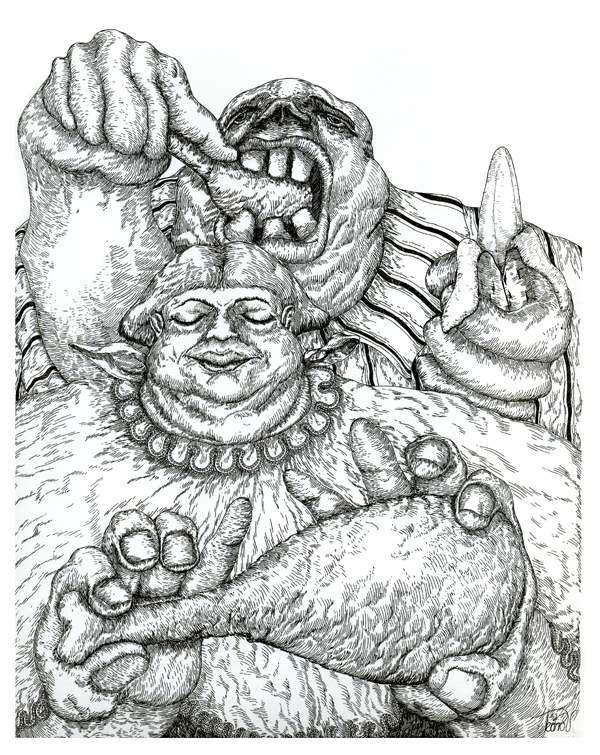
Etching 75 – Chapter XIII
“Aureliano Segundo was the unconquered eater until the luckless Saturday when Camila Sagastume appeared, a totemic female known all through the land by the good name of ‘The Elephant’.”
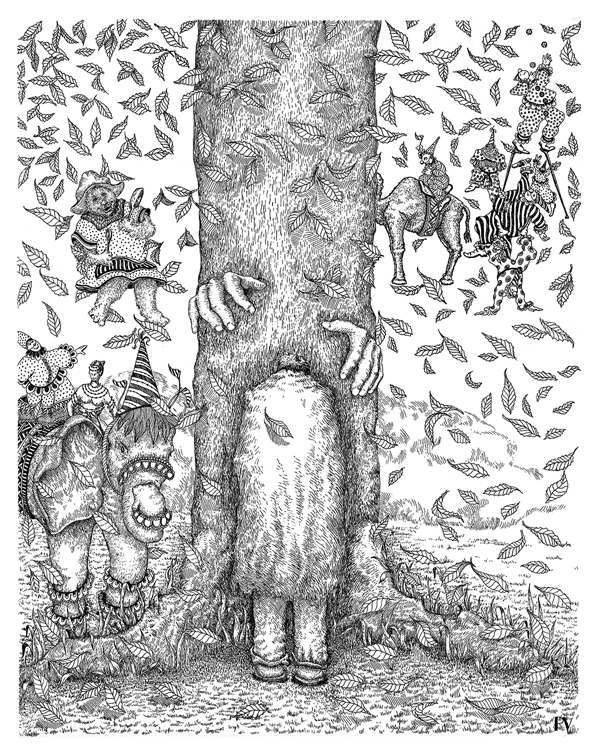
Etching 78 – Chapter XIII
“…while he urinated he tried to keep on thinking about the circus, but he could no longer find the memory.”
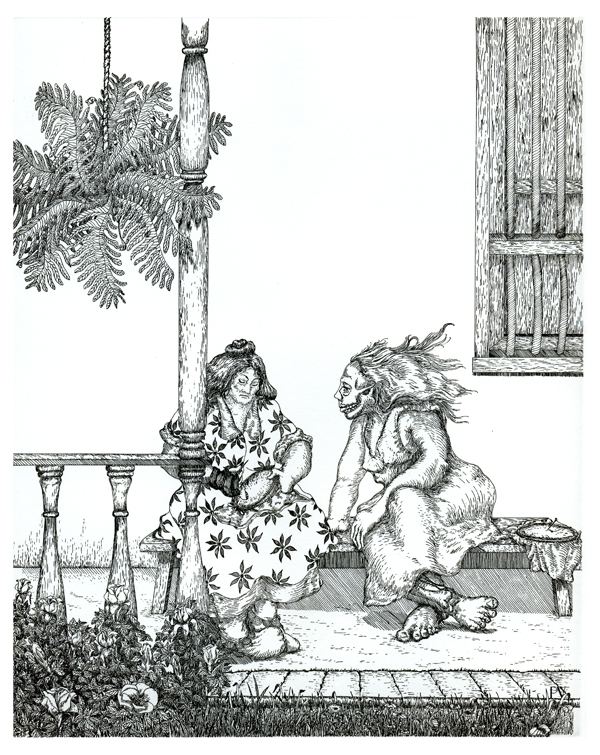
Etching 80 – Chapter XIV
“She saw it on one burning afternoon sewing with her on the porch a short time after Meme had left for school.”
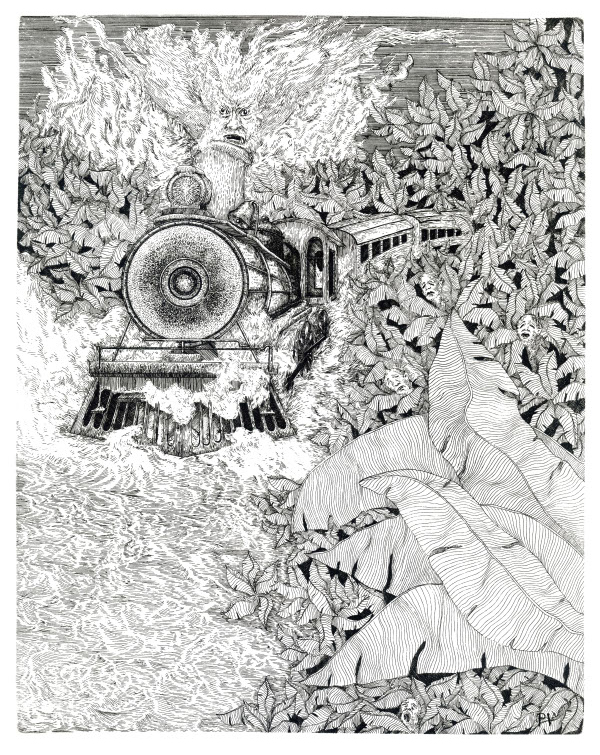
Etching 90 – Chapter XV
“ ‘There were more than three thousand of them…’ ”
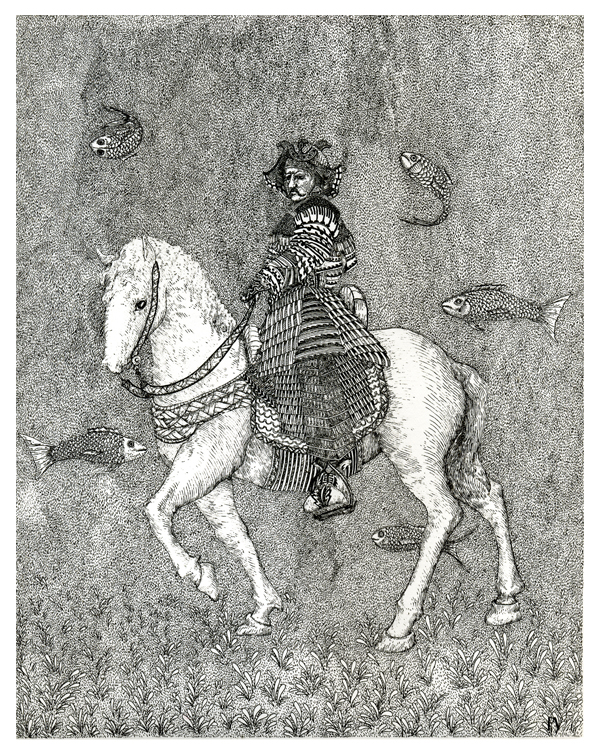
Etching 94 – Chapter XVI
“…after examining him closely he came to the conclusion that it was a picture of Colonel Aureliano Buendía.”
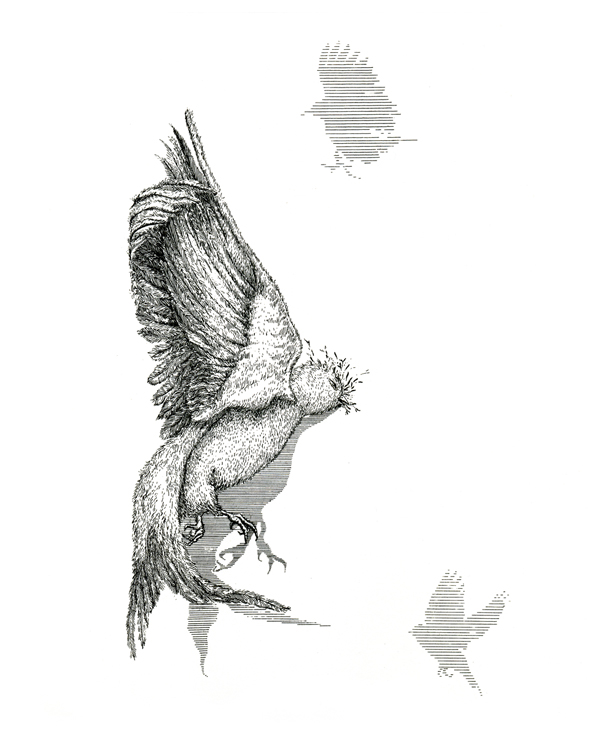
Etching 99 – Chapter XVII
“…the birds in their confusion were running into walls like clay pigeons and breaking through screens to die in the bedrooms.”
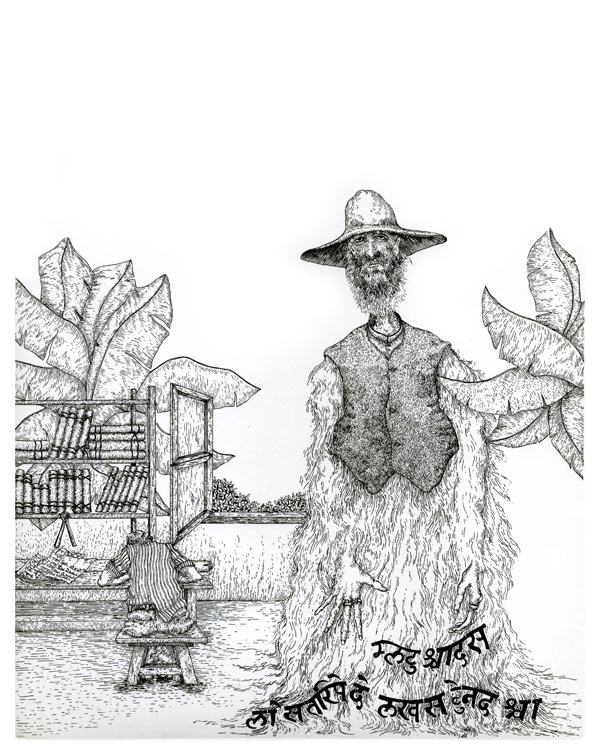
Etching 103 – Chapter XVIII
“Aureliano made progress in his studies of Sanskrit as Melquíades’ visits became less and less frequent and he was more distant,…”
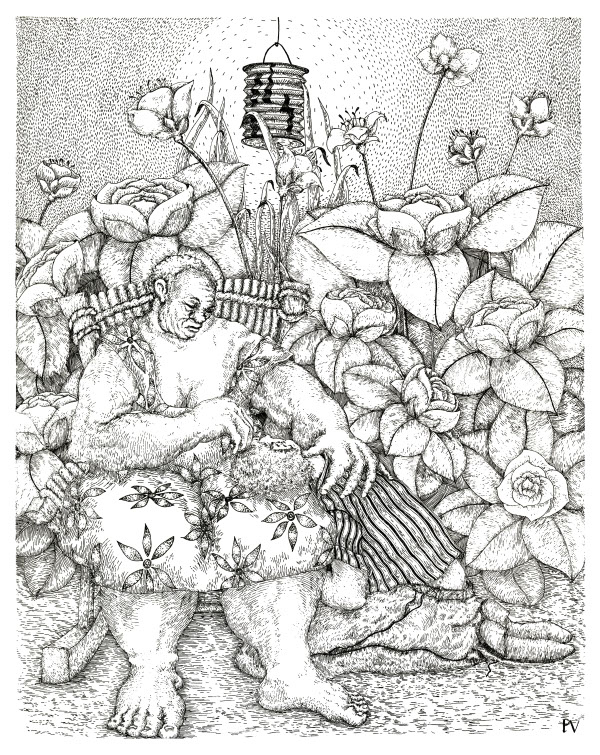
Etching 113 – Chapter XIX
“…she recognized immediately the oldest sobs in the history of man.”
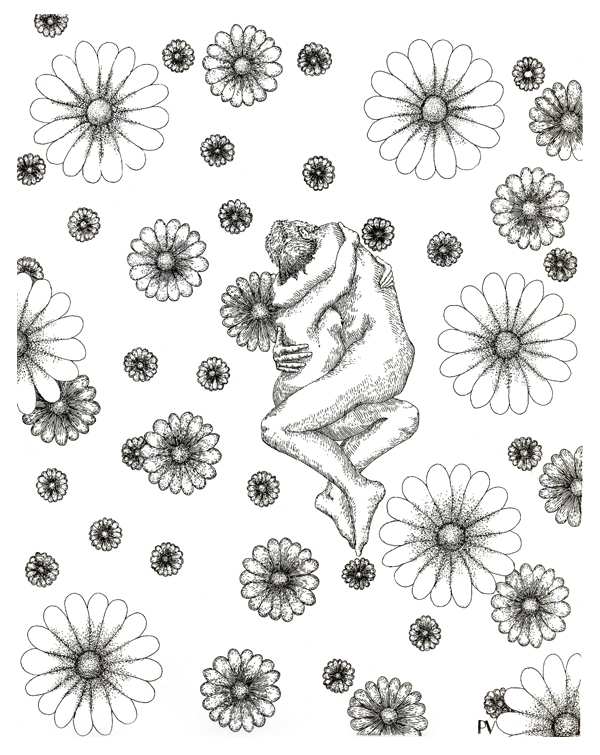
Etching 118 – Chapter XX
“Sometimes they would remain there in silence until nightfall, opposite each other, looking into each other’s eyes, loving each other as much as in their scandalous days.”

